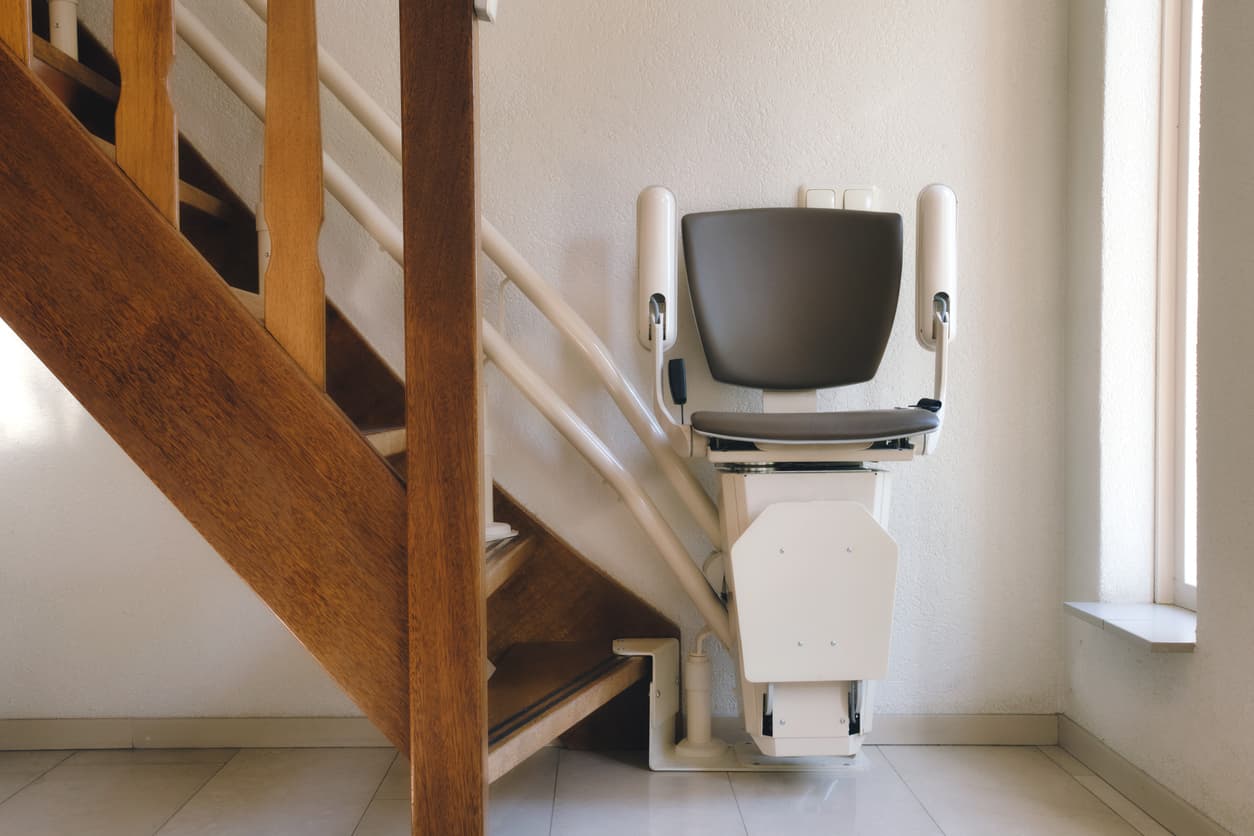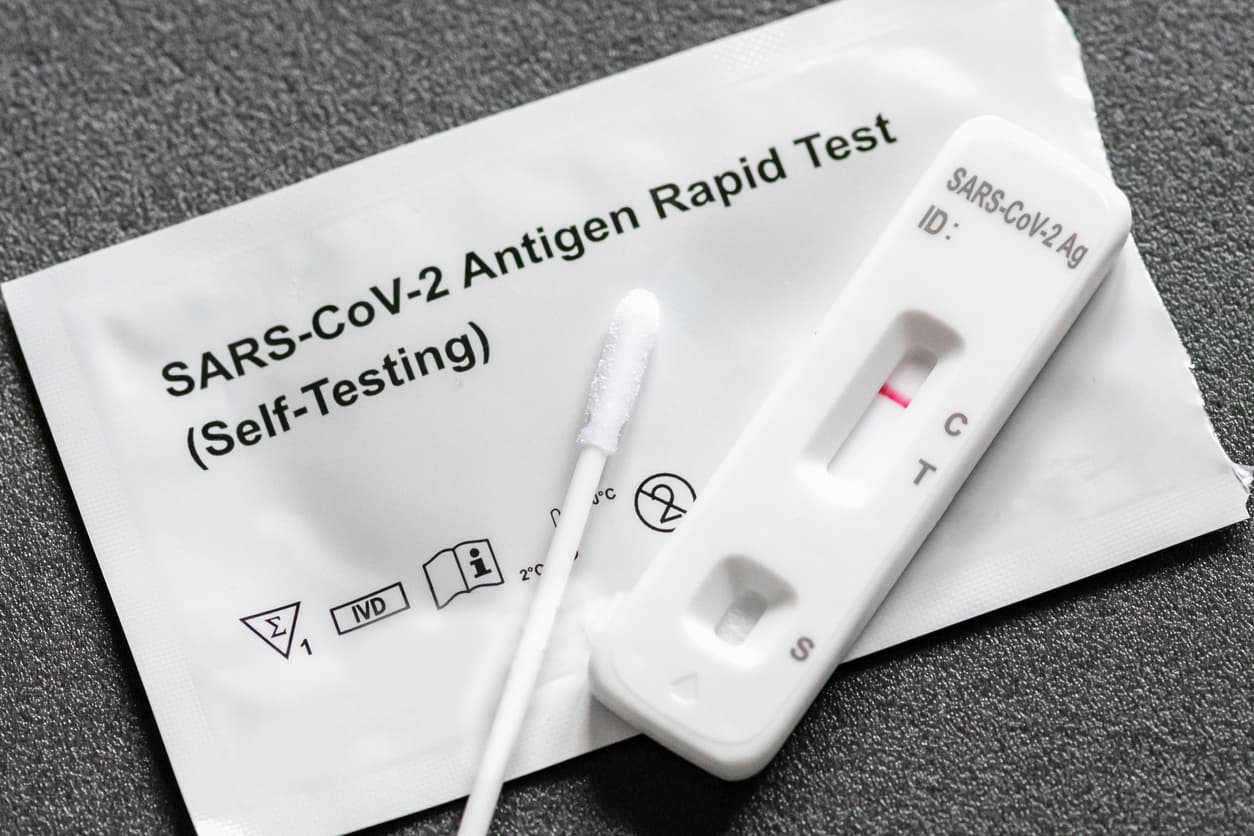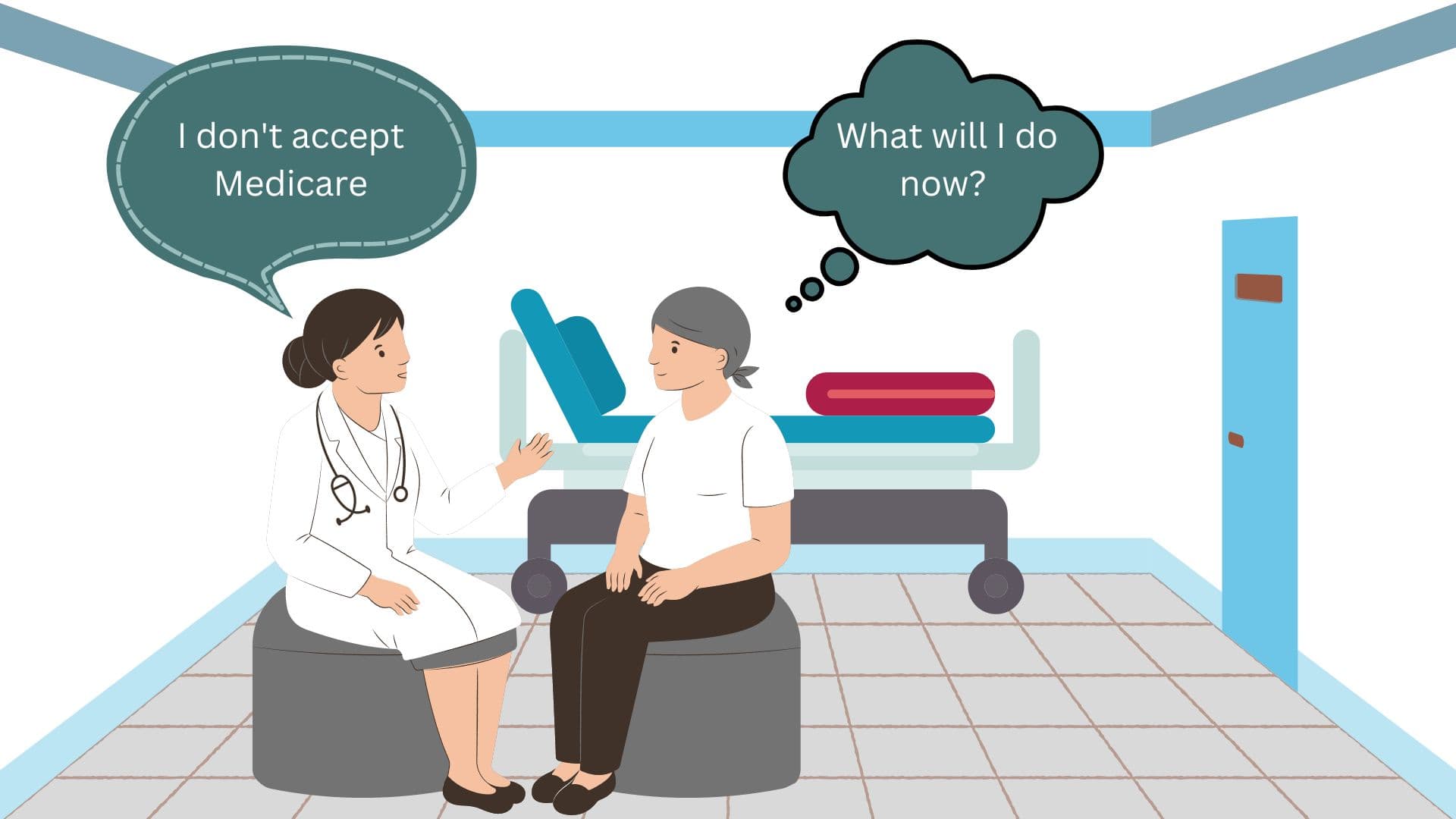Treat your overactive bladder
Finding the proper treatment for your overactive bladder can be challenging. If you are looking for a minimally invasive procedure, PTNS might be right for you. And the good news is Medicare will cover you for PTNS if it's deemed medically necessary. Let's talk more about what PTNS entails.
Speak with a Medicare Advocate
What is PTNS?
Percutaneous Tibial Nerve Stimulation (PTNS) is a minimally invasive treatment to help relieve overactive bladder symptoms, including urinary urgency and frequency. PTNS works by stimulating the nerves in your lower legs that control the bladder muscles. A small needle is inserted under the skin of your ankle and connected to a device that sends electrical pulses. These pulses help relax the bladder muscles and can reduce symptoms of an overactive bladder, like urgency and frequency of urination.
To be eligible for coverage under Medicare, you must meet certain criteria. To be covered, your doctor must determine that you have symptoms of overactive bladder, and they must certify that other treatments (such as medications) have not been effective. Additionally, the service must be provided by a Medicare-approved provider in order for it to be covered.
How does Medicare cover PTNS?
Medicare will cover PTNS if it's deemed medically necessary. This means that your doctor must agree that this treatment is the best option for relieving your symptoms and that there are no other treatments available. In addition, you must meet certain criteria, including having failed trials of conservative therapies such as lifestyle changes or medications. In some cases, Medicare may also cover PTNS if it's considered medically necessary to improve quality of life.
If you are approved for Medicare coverage, you will typically receive 80% of the cost after you have met your deductible. You'll be responsible for up to 20% of the remaining cost out-of-pocket, depending on your plan. For example, if you have Medicare Supplement Plan G
What are the benefits of PTNS?
PTNS is a safe and effective treatment for an overactive bladder that can help reduce urinary urgency and frequency. It has been found to have few side effects, is non-invasive, and does not require any medications or surgery. Additionally, patients report improved quality of life after undergoing the treatment.
Are there any risks associated with PTNS?
Although PTNS is generally a safe treatment, there are some minor risks associated with it. The most common side effects include temporary pain or discomfort in the lower legs where the stimulation takes place and mild tingling sensations in the bladder area. In rare cases, patients may experience an increase in symptoms or even urinary
How to get started with PTNS therapy?
If you think that PTNS might be a good treatment option for your overactive bladder, the first step is to speak with your doctor. Your doctor can evaluate you and determine if PTNS is the right choice for you. After they approve the treatment, they will refer you to a qualified provider who can then start the process of providing PTNS therapy.
Once you have started the treatment, your provider will be able to help you determine how often and for how long you should receive PTNS sessions in order to get the most benefit from them. With the right care and dedication, PTNS can help reduce or even eliminate symptoms of an overactive bladder so that you can live a better life.
Takeaway
If you have questions about PTNS, please contact your doctor or insurer for more information. They can help provide answers and assistance so that you can make the best decision for your health needs. This content is for informational purposes only. If you have questions about your Medicare coverage, give us a call at Fair Square Medicare. We'll connect you with an expert today.
Recommended Articles

Medigap vs. Medicare Advantage
May 25, 2020

Does Medicare Cover Stair Lifts?
Nov 18, 2022

Can Doctors Choose Not to Accept Medicare?
Dec 8, 2022

What To Do If Your Medicare Advantage Plan Is Discontinued
Feb 26, 2024

Does Medicare Cover Scleral Lenses?
Dec 5, 2022

What Is a Medicare Supplement SELECT Plan?
Apr 25, 2023

What Is the Medicare Birthday Rule in Nevada?
Mar 28, 2023

Fair Square Bulletin: We're Revolutionizing Medicare
Apr 27, 2023

Medicare Advantage Plans for Disabled People Under 65
Mar 24, 2023

Moving? Here’s What Happens to Your Medicare Coverage
Jul 15, 2025

Does Medicare Cover COVID Tests?
Dec 21, 2022

Does Medicare Cover the Urolift Procedure?
Dec 6, 2022

Can I Use Medicare Part D at Any Pharmacy?
Aug 28, 2023

Does Medicare Cover a Spinal Cord Stimulator?
Nov 19, 2022

How to Deduct Medicare Expenses from Your Taxes
Dec 28, 2022

Do I Need Medicare If My Spouse Has Insurance?
Dec 19, 2022

What to Do When Your Doctor Doesn't Take Medicare
Feb 24, 2023

Does Medicare Cover Mental Health?
Oct 12, 2022
More of our articles
20 Questions to Ask Your Medicare Agent
2024 Fair Square NPS Report
2025 Medicare Price Changes
Are Medicare Advantage Plans Bad?
Building the Future of Senior Healthcare
Can I Change My Primary Care Provider with an Advantage Plan?
Do All Hospitals Accept Medicare Advantage Plans?
Do You Need Books on Medicare?
Does Medicare Cover Bladder Sling Surgery?
Does Medicare Cover Cala Trio?
Does Medicare Cover Cardiac Ablation?
Does Medicare Cover Cervical Disc Replacement?
Does Medicare Cover Chiropractic Visits?
Does Medicare Cover Cold Laser Therapy (CLT)?
Does Medicare Cover Compounded Medications?
Does Medicare Cover Cosmetic Surgery?
Does Medicare cover Deviated Septum Surgery?
Does Medicare Cover Diabetic Eye Exams?
Does Medicare Cover Disposable Underwear?
Does Medicare Cover Hearing Aids?
Does Medicare Cover Hoarding Cleanup?
Does Medicare Cover Ketamine Infusion for Depression?
Does Medicare Cover Kidney Stone Removal?
Does Medicare Cover Krystexxa?
Does Medicare Cover Kyphoplasty?
Does Medicare Cover Macular Degeneration?
Does Medicare Cover Medical Marijuana?
Does Medicare Cover Mouth Guards for Sleep Apnea?
Does Medicare Cover Nuedexta?
Does Medicare Cover Ofev?
Does Medicare Cover Orthodontic Care?
Does Medicare Cover Physicals & Blood Work?
Does Medicare Cover PTNS?
Does Medicare Cover Robotic Surgery?
Does Medicare Cover Service Animals?
Does Medicare Cover SIBO Testing?
Does Medicare Cover Tymlos?
Does Medicare Cover Zilretta?
Does Medicare Have Limitations on Hospital Stays?
Does Medicare Pay for Antivenom?
Does Medicare Pay for Bunion Surgery?
Does Medicare pay for Opdivo?
Estimating Prescription Drug Costs
Everything About Your Medicare Card + Medicare Number
Explaining IRMAA on Medicare
Explaining the Different Enrollment Periods for Medicare
Finding the Best Dental Plans for Seniors
Finding the Best Vision Plans for Seniors
Gap Health Insurance: The Secret Sidekick to Your High-Deductible Plan
How Do Medicare Agents Get Paid?
How Does Medicare Cover Colonoscopies?
How Much Does a Medicare Coach Cost?
How Much Does a Pacemaker Cost with Medicare?
How to Enroll in Social Security
How Your Employer Insurance and Medicare Work Together
Medicare 101
Medicare Advantage MSA Plans
Medicare Deductibles Resetting in 2025
Saving Money with Alternative Pharmacies & Discount Programs
Should You Work With A Remote Medicare Agent?
Turning 65 and Thinking of Keeping COBRA? Here’s Why It Usually Backfires
Welcome to Fair Square's First Newsletter
What Does Medicare Cover for Stroke Patients?
What Happens to Unused Medicare Set-Aside Funds?
What If I Don't Like My Plan?
What Is a Medicare Advantage POS Plan?
What is a Medicare Beneficiary Ombudsman?
What to Do When Your Doctor Leaves Your Network
When to Choose Medicare Advantage over Medicare Supplement
Which Medigap Policies Provide Coverage for Long-Term Care?
Will Medicare Cover Dental Implants?
Will Medicare Cover it?
Get the Fair Square Bulletin
Medicare savings tips, helpful guides, and more.
Virgil Insurance Agency, LLC (DBA Fair Square Medicare) and www.fairsquaremedicare.com are privately owned and operated by Help Button Inc. Medicare supplement insurance plans are not connected with or endorsed by the U.S. government or the federal Medicare program. This is a solicitation of insurance. A licensed agent/producer may contact you. Medicare Supplement insurance is available to those age 65 and older enrolled in Medicare Parts A and B and, in some states, to those under age 65 eligible for Medicare due to disability or End-Stage Renal disease. Virgil Insurance Agency is a licensed and certified representative of Medicare Advantage HMO, HMO SNP, PPO, PPO SNP and PFFS organizations and stand-alone PDP prescription drug plans. Each of the organizations we represent has a Medicare contract. Enrollment in any plan depends on contract renewal. The plans we represent do not discriminate on the basis of race, color, national origin, age, disability, or sex. Plan availability varies by region and state. For a complete list of available plans please contact 1-800-MEDICARE (TTY users should call 1-877-486-2048), 24 hours a day/7 days a week or consult www.medicare.gov. © 2026 Help Button Inc
We do not offer every plan available in your area. Any information we provide is limited to those plans we do offer in your area. Please contact Medicare.gov or 1-800-MEDICARE to get information on all of your options.
MULTIPLAN_FairSquareMedicare_01062022_M
Fair Square Medicare


